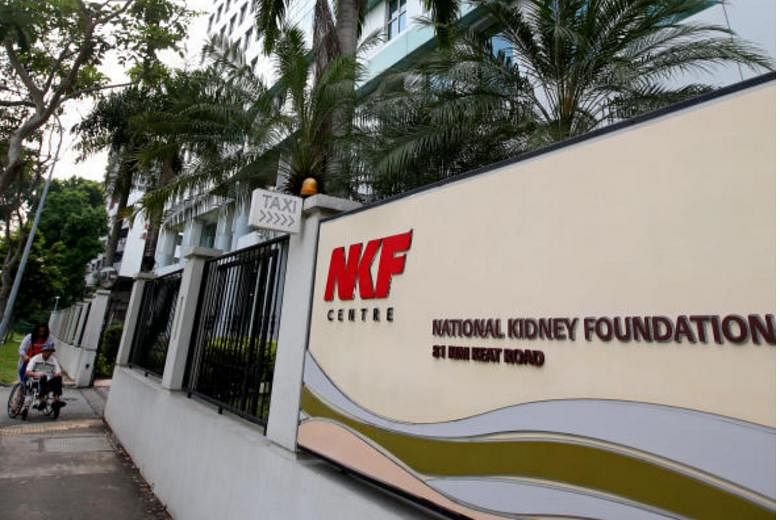SINGAPORE - The National Kidney Foundation (NKF) will build more dialysis centres within polyclinics, community hospitals and community centres in a bid to improve integrated care and support for the increasingly complex needs of patients.
New centres located in Punggol Polyclinic and Toa Payoh West Community Club are due to be operational by September this year and August next year respectively.
NKF chief executive Tim Oei said on Friday (April 5) that the foundation has also submitted a proposal to set up a dialysis centre in a community hospital located in the north of Singapore.
"We are in dire need of more dialysis centres, particularly in the east and the north-east. Currently, the occupancy of dialysis centres in these areas is about 90 per cent," he said.
He was speaking at an event marking the foundation's 50th anniversary at the NKF Centre in Kim Keat Road.
With Singapore's rapidly ageing population, more than half of NKF's dialysis patients are now over the age of 60. They are more likely to be frail, require mobility assistance and be afflicted with other conditions such as hypertension.
Locating dialysis centres within existing healthcare and community facilities will improve accessibility and convenience, especially for high-dependency patients who are already going to hospital for other medical needs, said Mr Oei.
Currently, many patients at community hospitals that do not offer dialysis have to spend six to seven hours a day for treatment, including time needed for transport to and from a dialysis centre, he added.
In his opening address, NKF chairman Koh Poh Tiong revealed that the foundation's annual operating cost has doubled since he took over as chairman in 2012, from $60 million to $120 million this year.
This is mainly due to the rising number of kidney failure patients, he said. In 2012, about three Singaporeans suffered kidney failure every day, and NKF was treating about 3,000 patients at 25 dialysis centres.
"Today, the rate has increased to five per day and next year it will be 5.8 per day. We now look after 4,500 patients at 36 centres," Mr Koh said.
With the opening of more centres, including a "mega centre" in Corporation Road which will have 120 chairs, compared to an average of 20 chairs at most centres now, the foundation's operating cost is expected to rise to $160 million by 2021, he added.
A commemorative book showcasing the NKF's 50-year journey was also launched at Friday's event. It features stories and reflections written by patients, caregivers, NKF staff and other stakeholders as well as portraits of each writer by students from the School of the Arts.
One of the patients featured is medical equipment sales director Richard Tay, 58, Singapore's longest surviving dialysis patient. He was born with a blocked bladder and has been on dialysis for the last 39 years - since he was 19 years old.
In the early 1980s, Mr Tay would spend 15 to 16 hours a day undergoing dialysis at a hospital. He said dialysis is much faster, easier and more convenient today as he spends just four hours a day at a dialysis centre near his home in Clementi.
The book was launched by Speaker of Parliament Tan Chuan-Jin, who was the guest of honour. He said NKF has played an important role not only in providing dialysis treatment but also in promoting kidney disease prevention and organ donation.
"Going forward, we will invariably still have to deal with the numbers of kidney patients and the finances that come with supporting all of them in the years to come.
"But if we endeavour to really step up in terms of having healthier lifestyles, promoting healthier diets and also organ donation, we can alleviate a lot of the burden that will be placed on NKF and other agencies involved."


